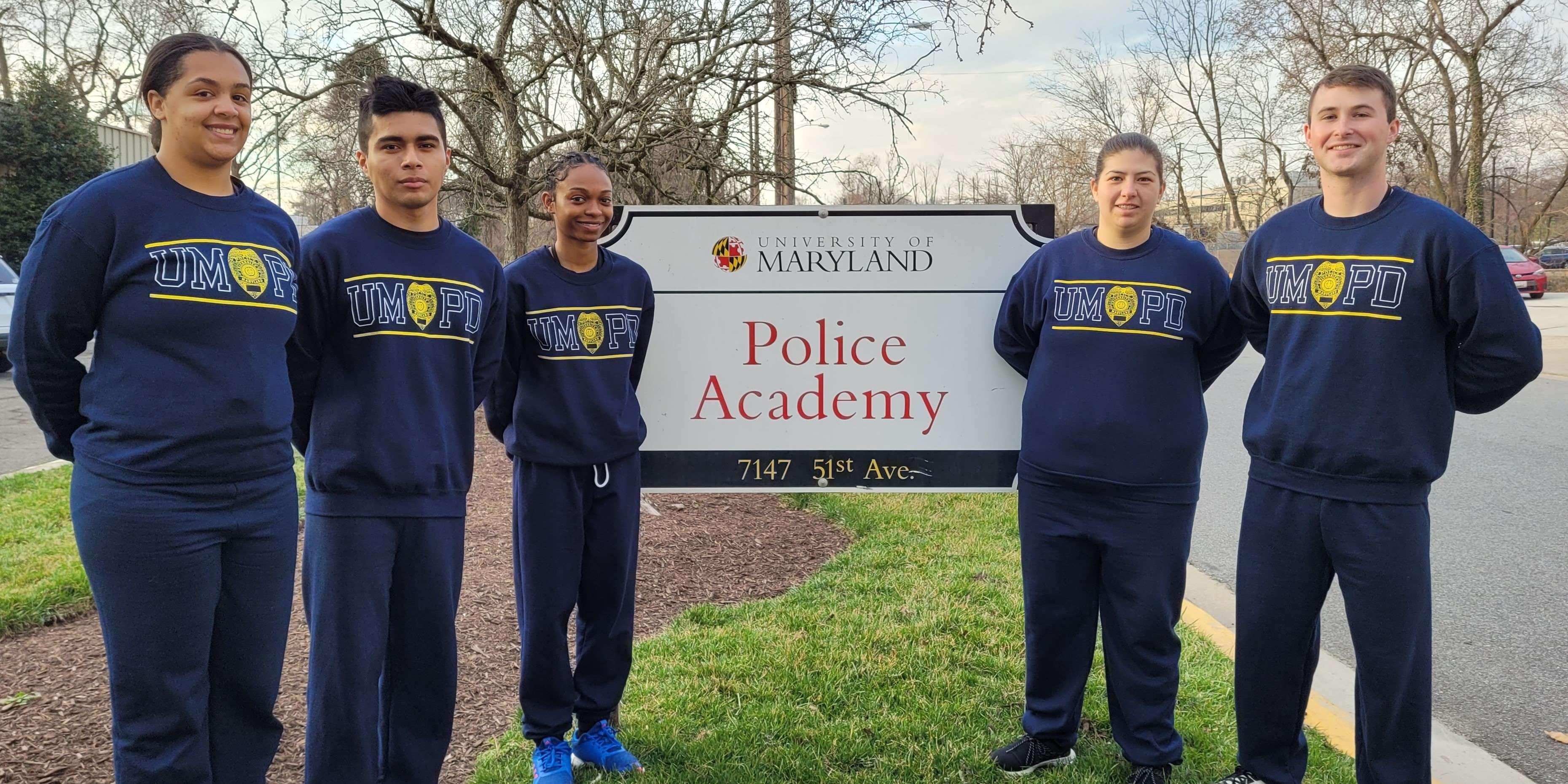
Training Academy
The Training Academy is responsible for the development of police officers to ensure they are serving the University of Maryland community in a manner that reflects the university’s and department’s mission and values. In addition, they coordinate continuing education, certification and testing programs for the department.
The Training Academy staff’s dedication and professionalism promote strong relationships, which assist us in understanding our community and its needs. This holistic approach leads to the development of effective policies and protocols for the department.
Responsibilities:
- Conduct training for department personnel
- Manage Police Academy instruction
- Conduct advanced annual in-service police training
- Coordinate officer wellness programs
- Coordinate advanced law enforcement training with non-UMD partners
- Provide continuing education
- Manage and conduct firearms and less-lethal qualifications
- Coordinate Field Training Officer program
- Conduct police applicant testing and background investigations, which include mental health screenings
- Coordinate critical incident stress management (mental health check-ins)
- Coordinate Citizens’ Police Academy
Police Academy
The University of Maryland Police Department is the only university police department in Maryland to offer an entry-level police training academy. This certified program, authorized by the Maryland Police and Correctional Training Commissions (MPCTC), has enabled us to train and certify new officers for our agency as well as allied agencies around the area.
Certified instructors from our department and other law enforcement agencies develop lesson plans that meet required mandates and best practices set forth by the U.S. Constitution, the Maryland State Legislature, and the MPCTC.
Police trainees attend the Training Academy for approximately 29 weeks, which equates to 1,100-plus hours of learning. Our entry-level officers are tested on over 650 mandated learning objectives in numerous required topics:
- Organizational principles and law
- Patrol
- Traffic
- Criminal investigations
- Law Enforcement Emergency Medical Care (First Aid & CPR)
- Communications
- Report writing
- Crime prevention
- Crisis intervention
- Protective strategies and tactics/use of force
- Emergency vehicle operations
- Prisoner processing and security
- Courtroom preparation and testimony
- Health and wellness
- Terrorism and weapons of mass destruction
- Firearms
Additional components and topics include:
- A tour of the United States Holocaust Memorial Museum
- A tour of the Smithsonian's National Museum of African American History and Culture
- Fair and Impartial Policing
- Diversity and inclusion at UMD
- LGBTQ+ training and awareness
- Basic Spanish phrases for law enforcement
- Autism training and awareness
- Deaf training and awareness
- Communicating with people with Intellectual and Developmental Disabilities (IDD)
- Dementia training and awareness
Police In-Service Training
In addition to the topics covered in the Academy, every police officer must maintain their certifications by meeting the required annual advanced in-service training set forth by the MPCTC. While the minimum requirement is 18 hours per year, our department offers more than twice that training. The advanced annual in-service training requirement includes firearms qualifications with judgment enrichment drills. Some of the additional subjects we offer are as follows:
- Sanctity of life pledge
- Defensive tactics encompassing communication skills/de-escalation techniques
- Mental health engagement
- Crisis intervention concepts
- Use of force (response to resistance): as necessary and proportional
- Scenario-based training to enhance performance levels
- Annual implicit bias training and topics in diversity, equity, and inclusion
- Anti-discrimination, anti-retaliation, and anti-harassment
- Regular and ongoing diversity training
- Taser/FN-303 less lethal options
In order to maintain our Advanced Accreditation with the Commission on Accreditation for Law Enforcement Agencies (CALEA), we also offer several additional topics, which include the following but are not limited to:
- Criminal laws about rape, sexual offenses, the sexual abuse and exploitation of children, and related evidentiary procedures
- Contact with and treatment of victims of crimes and delinquent acts
- Notices, services, support, and rights available to victims and victim's representatives under Maryland law
- Notification of victims of identity fraud and related crimes of their rights under federal law
- Autism, hearing impairment, and behavioral/mental health awareness
- De-escalation and critical incident stress mitigation
- Physical fitness standards
Join Us
Looking for a rewarding career in law enforcement? Join our team and be part of the tradition of Protecting Maryland’s Future.
